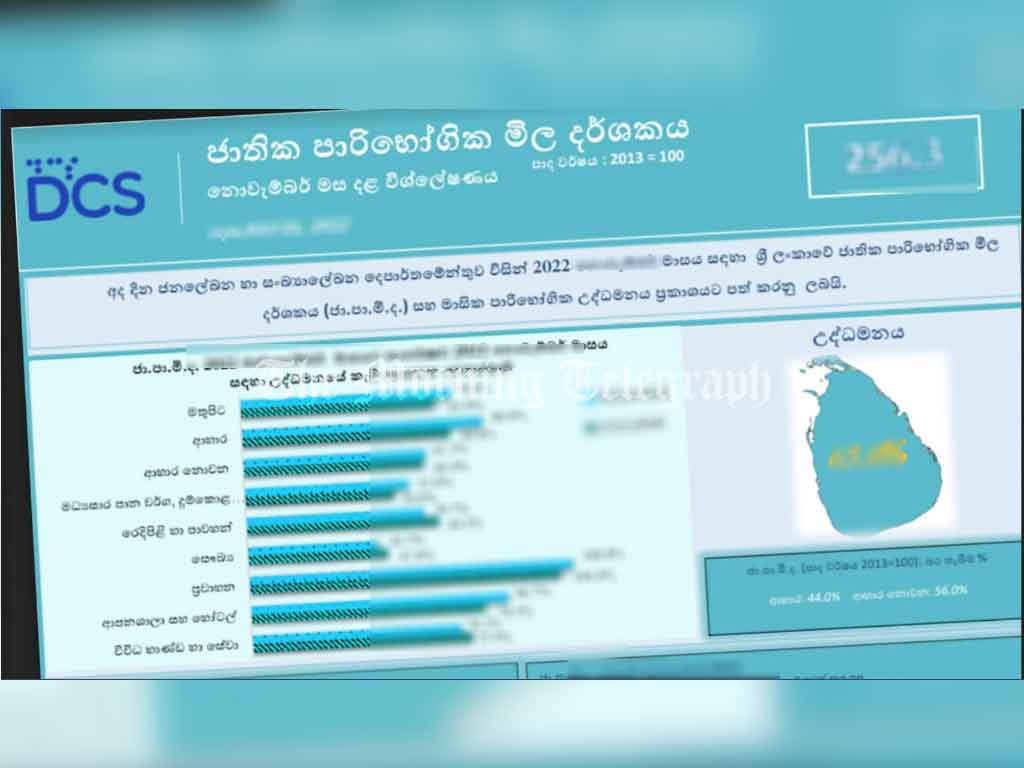
Sri Lanka’s Department of Census and Statistics has released the National Consumer Price Index (NCPI) and inflation data for October 2024, showing mixed trends in the country’s economic performance. The overall inflation rate, recorded at -0.2% in September, dropped further to -0.7% in October, signaling a continuation of the deflationary trend. However, this broader deflation masks a rise in food inflation, which has become a growing concern for consumers.
Inflation in the food category increased to 1.3% in October, up from 0.5% in September. This rise in food prices contrasts with the non-food category, where inflation decreased significantly from -0.7% in September to -2.3% in October. The disparity highlights the uneven nature of price movements, with essential goods becoming more expensive while non-essential goods and services experience declining costs.
The increase in food prices is likely to have a greater impact on lower-income households, where food constitutes a significant portion of monthly expenditures. Meanwhile, the continued deflation in non-food categories points to subdued demand across other sectors of the economy.
The simultaneous rise in food prices and overall deflation suggests underlying issues in supply chains and production systems that may need immediate attention. Policymakers face the challenge of balancing efforts to control food inflation while also stimulating broader economic demand. Addressing these divergent trends will be critical for achieving economic stability in the coming months.




